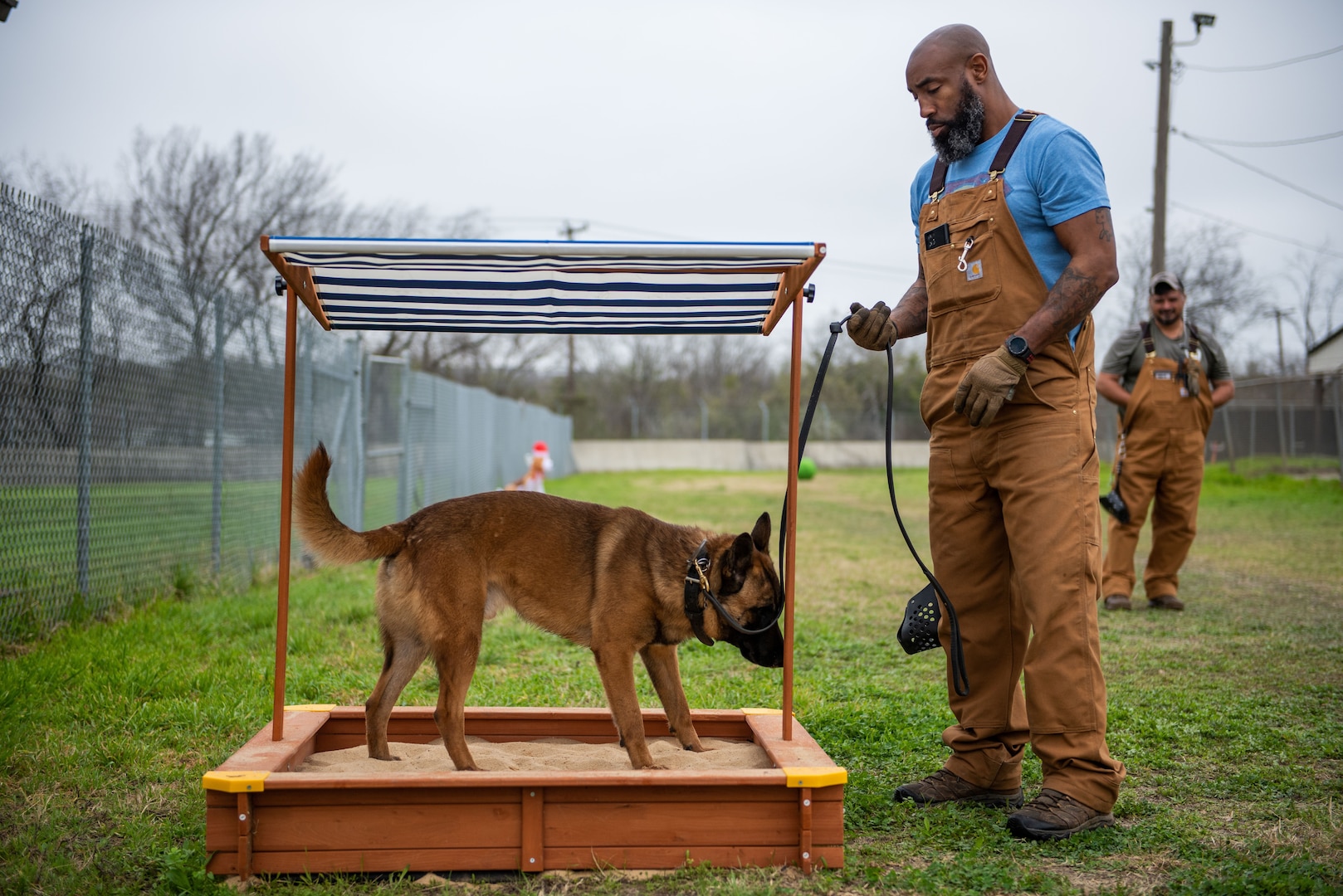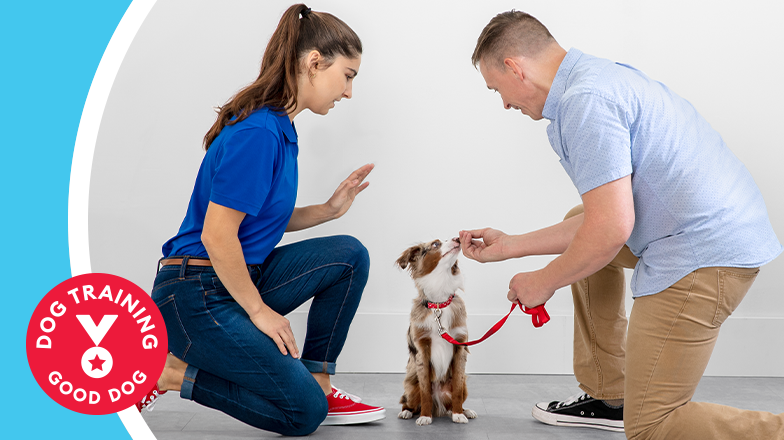Get Results with Puppy Training That Sets the Foundation for a Well-Behaved Dog
Get Results with Puppy Training That Sets the Foundation for a Well-Behaved Dog
Blog Article
Transform Your Pet dog's Habits With Proven Training Techniques
Changing your dog's habits needs a nuanced understanding of their specific qualities and requirements, as well as the application of proven training methods. By using favorable support and recognizing crucial signs in their body movement, you can properly address common behavioral problems such as excessive leaping or barking. Uniformity in your training strategy not just enhances obedience yet also promotes a much deeper bond of depend on and respect in between you and your family pet. The course to successful change may offer unanticipated challenges that warrant more expedition.

Comprehending Canine Actions
Comprehending pet behavior is crucial for effective training and interaction in between humans and their canine buddies. Pets, as social animals, display a variety of behaviors influenced by genes, environment, and experiences. Identifying these actions aids owners customize their training approaches to meet the certain demands of their dogs.
Secret elements of canine habits include body language, vocalizations, and social interactions. In addition, socializing plays an essential role in shaping behavior; dogs that connect favorably with other pets and different people are normally much more versatile and well-adjusted.
Moreover, identifying stress and anxiety signals-- such as pacing, evasion, or panting habits-- can prevent escalation right into a lot more major concerns. Proprietors who are attuned to their pet's habits can create a secure and nurturing setting, promoting trust and improving the training process. Inevitably, a deep understanding of canine actions lays the foundation for a harmonious partnership and reliable training results, guaranteeing both canines and their proprietors flourish with each other.
Positive Support Methods
Positive support techniques are commonly recognized as one of the most effective approaches for training dogs, cultivating a positive discovering environment. This technique includes satisfying wanted behaviors with deals with, appreciation, or play, thereby encouraging the canine to repeat those behaviors (Dog training). Unlike revengeful methods, favorable support develops trust fund and strengthens the bond in between the instructor and the dog
To carry out favorable support efficiently, timing is vital. Rewards ought to be provided immediately following the wanted behavior to aid the pet make the link. Consistency is additionally important; utilizing the exact same commands and benefits aids the pet understand what is expected. Furthermore, differing the benefits can maintain the pet dog involved. As an example, rotating in between deals with, playthings, and verbal praise can preserve interest and motivation.
It is necessary to note that favorable support is not regarding bribery; rather, it is about enhancing excellent habits. In time, as the dog finds out to link particular activities with favorable end results, the regularity of incentives can be progressively reduced, transitioning to verbal praise or intermittent rewards. This technique not only urges obedience however also promotes a satisfied and positive pet dog, making training a more enjoyable experience for both events included.
Dealing With Usual Problems
Resolving common concerns during dog training is essential for making certain a successful and unified connection in between the pet dog and its proprietor. Numerous pet proprietors experience behavior challenges, such as extreme barking, leaping, and leash drawing. Comprehending the origin causes of these habits is essential for reliable training.
To minimize this, provide sufficient physical exercise, mental stimulation, and possibilities for social communication with both humans and other canines. Educating the dog to rest upon welcoming can reroute this behavior positively.
Leash pulling is another widespread problem, often resulting from a dog's eagerness to explore. Making use of correct chain handling techniques, combined with training methods that urge loose-leash strolling, can substantially enhance this habits.
On top of that, problems like resource protecting click to read or separation anxiousness call for customized approaches. Progressive desensitization and counter-conditioning can be effective in dealing with these challenges. By recognizing and proactively taking care of these common concerns, pet owners can foster an extra satisfying training experience and strengthen the bond with their canine companions.
Uniformity in Training
Uniformity is a cornerstone of reliable pet dog training, as it establishes a clear structure for the canine to understand behaviors and assumptions. When cues, commands, and incentives are applied evenly, canines can more easily understand what is called for of them. Irregular training can lead to confusion, causing unfavorable behaviors that discourage both the pet and the trainer.
To accomplish consistency, it is essential that all participants of the home follow the very same training methods. Using the exact same spoken signs and hand signals guarantees that the pet receives uniform messages. Furthermore, the timing of adjustments and rewards must correspond; immediate reinforcement boosts the chance that the canine will connect the actions with the end result.
Regular practice sessions, paired with organized routines for feeding, walking, and playtime, aid pets prepare for and comprehend their atmosphere, making them much more receptive to training. Inevitably, consistency fosters a feeling of security and trust, empowering dogs to discover much more efficiently.
Building a Solid Bond
Exactly how can fostering a solid bond in between a pet and its owner enhance the training experience? A strong relationship improved trust fund and Website respect works as the structure for efficient training. When a dog really feels protected in its connection with its proprietor, it is most likely to exhibit favorable habits and be responsive to discovering. This bond encourages the pet to engage totally in training sessions, as it checks out the owner as a resource of support and support.

Additionally, a well-established connection can decrease stress and anxiety and behavioral issues, as dogs are much less Look At This most likely to act out when they really feel recognized and taken care of. Prioritizing the growth of a strong bond not only improves the training experience however also contributes to a happier and more well-adjusted dog. Inevitably, the journey of training transforms right into a collective partnership, resulting in lasting behavior renovations.
Final Thought

Proprietors that are attuned to their pet's behavior can produce a nurturing and safe atmosphere, promoting trust fund and enhancing the training process. Eventually, a deep understanding of canine habits lays the structure for an unified partnership and effective training outcomes, making sure both dogs and their owners flourish together.
Attending to usual concerns throughout pet dog training is essential for guaranteeing a harmonious and successful relationship between the canine and its proprietor (Dog training).Consistency is a cornerstone of effective dog training, as it establishes a clear framework for the dog to recognize assumptions and habits.In conclusion, transforming a canine's behavior through proven training methods calls for an understanding of canine actions, the application of favorable reinforcement methods, and a focus on consistency
Report this page